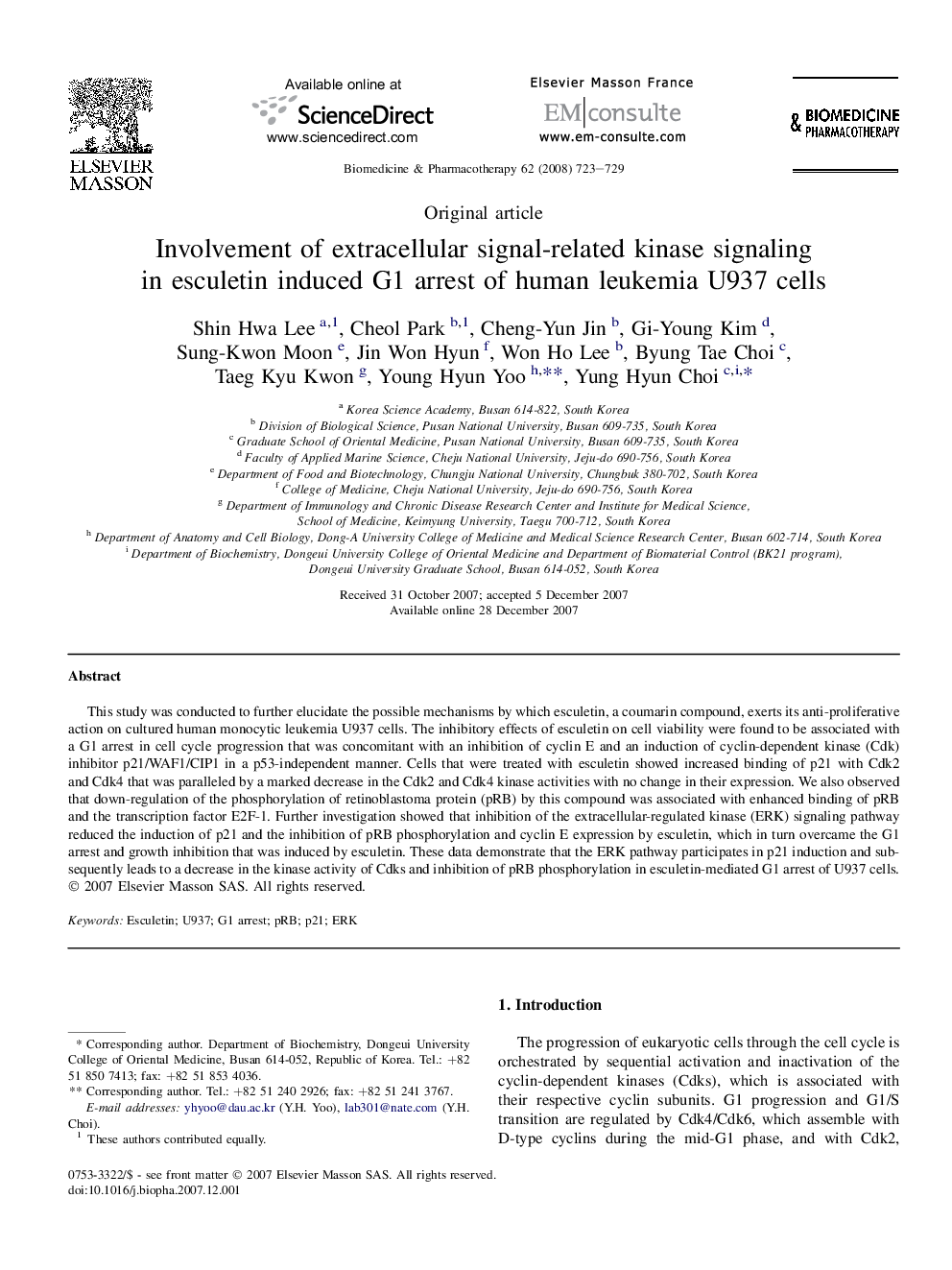| Article ID | Journal | Published Year | Pages | File Type |
|---|---|---|---|---|
| 2525322 | Biomedicine & Pharmacotherapy | 2008 | 7 Pages |
This study was conducted to further elucidate the possible mechanisms by which esculetin, a coumarin compound, exerts its anti-proliferative action on cultured human monocytic leukemia U937 cells. The inhibitory effects of esculetin on cell viability were found to be associated with a G1 arrest in cell cycle progression that was concomitant with an inhibition of cyclin E and an induction of cyclin-dependent kinase (Cdk) inhibitor p21/WAF1/CIP1 in a p53-independent manner. Cells that were treated with esculetin showed increased binding of p21 with Cdk2 and Cdk4 that was paralleled by a marked decrease in the Cdk2 and Cdk4 kinase activities with no change in their expression. We also observed that down-regulation of the phosphorylation of retinoblastoma protein (pRB) by this compound was associated with enhanced binding of pRB and the transcription factor E2F-1. Further investigation showed that inhibition of the extracellular-regulated kinase (ERK) signaling pathway reduced the induction of p21 and the inhibition of pRB phosphorylation and cyclin E expression by esculetin, which in turn overcame the G1 arrest and growth inhibition that was induced by esculetin. These data demonstrate that the ERK pathway participates in p21 induction and subsequently leads to a decrease in the kinase activity of Cdks and inhibition of pRB phosphorylation in esculetin-mediated G1 arrest of U937 cells.
